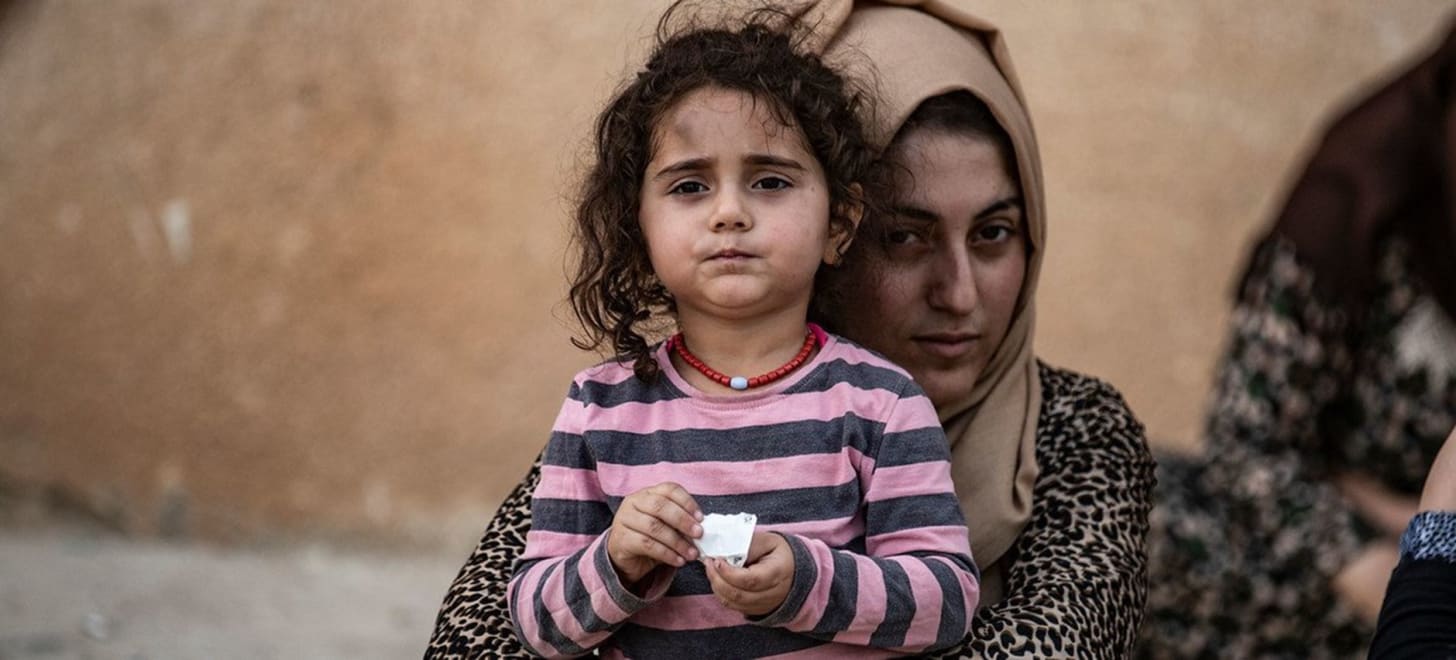WESTERN SANCTIONS: THE WORLD’S UNSEEN KILLER
Cruel embargos target the poorest countries
From 1990 to 2003, a United Nations blockade deprived Iraqi civilians of basic necessities such as food and medicines.
So draconian was the blockade that by 1996, the UN’s children agency, UNICEF, reported that half a million children had died under the age of five.
In 1999, I went to a United Nations human rights forum to persuade countries to lift the sanctions on Iraq.
The British delegate told me that a blockade was the correct policy because it put pressure on Saddam Hussein to abandon his Weapons of Mass Destruction (WMD) program.
We now know the WMD didn’t exist.
I said to the British delegate in 1999, isn’t it immoral to use the lives of children as bargaining chips?
The man from the Foreign and Commonwealth Office looked sheepish. He admitted that solving ethical dilemmas in foreign policy was above his pay grade. ‘‘I don’t have a university degree…’ he offered apologetically.
The Italian delegate shrugged his shoulders. ‘Yes the blockade is terrible for the children. But the Americans want it.’
The US-led sanctions had caused a terrible massacre of the innocents, and the subsequent US/UK war on Iraq compounded the disaster. Both crimes have yet to be acknowledged.
Sanctions: The ‘inexpensive’ weapon
The aim of a blockade – or sanctions, the legal term – is to strangle a country’s economy in order to change the behaviour of its government.
Trade restrictions are kept in place not by a besieging army, but by a vast bureaucratic regime that’s a less costly method of coercion than putting troops on the ground.
The humanitarian impacts are invidious, cumulative and rarely make headline news. Elite classes find ways to evade its punishing effects.
UNICEF/Delil Souleiman
Source: Unilateral sanctions particularly harmful to women, children, other vulnerable groups | UN News
Humanitarian organisations have long signalled a blockade’s adverse impacts on children. An assessment from 1990 to 2014 in 66 countries found that the imposition of sanctions exacerbated the incidence of hunger and malnutrition in children under five years.
A 2023 review of 30 reports found that the collateral effects of sanctions on civilians, especially children, women and vulnerable populations, are inescapable. Sanctions have negative effects on outcomes ranging from per capita income to poverty, inequality, mortality, and human rights.
Yet the numbers of sanctioned countries, companies, individuals and industrial sectors are multiplying year on year. Currently there are thousands of different sanctions against approximately thirty countries.
The most comprehensive and longest blockades have been imposed on Syria, North Korea, Iran and Cuba.
Stated reasons are ‘human rights/democracy,’ ‘anti-terrorism’ and ‘peace and security.’
The Fallacy of ‘Targeted’ Sanctions
When the word got out that half a million Iraqi children had died due to the United Nations sanctions regime, concerns were raised. It was decided a more humanitarian method would be to impose penalties on certain individuals, entities and sectors, such as banking and arms purchases.
The idea was that targeted sanctions, similar to ‘precision bombing,’ would allow the import of vital supplies such as food and medicines.
It's now recognized that ‘targeted’ sanctions impact civilians in the same way as a comprehensive blockade.
This is because Western Powers have implemented an ever-increasing number of trade restrictions on key sectors: banking, energy and agriculture that have knock-on effects like higher prices of food, education and health services. Forbidding local industries to engage in foreign trade results in rising unemployment.
There are now three different types of sanctions: multilateral, unilateral and secondary. The latter penalizes countries that trade with sanctioned countries, a form of extraterritorial jurisdiction some view as illegal.
For Sub-Saharan African countries crippled by poverty, war and famine, multi-layered sanctions are a particularly cruel punishment. Here is a current list of sanctions imposed on some of the poorest countries in the world by the United States (US,) United Kingdom (UK,) European Union (EU) and United Nations Security Council (UNSC):
Burundi (US, UK)Central African Republic (US, EU, UK and UNSC)Cote d’Ivoire (US)Democratic Republic of the Congo (US, EU, UK and UNSC)Eritrea (US)Guinea (EU)Republic of Guinea-Bissau (EU, UK, UNSC)Mali (EU, UK)Somalia (US, UK)Sudan (US, UK, UNSC and EU)South Sudan (US, UK, UNSC and EU)Zimbabwe (US, UK, EU) Exemptions on humanitarian grounds are meaningless. For example, medicines containing dual-use chemicals ( meaning civilian and military use ) are forbidden, limiting cancer treatments. Delays are caused by the complex bureaucracy involved in getting approved for a sanction exemption license. Aid agencies are reluctant to service sanctioned populations for fear of retaliation or cumbersome paperwork.
The US is the most frequent imposer of sanctions. Its ability to implement them effectively is due to its global reach in the international arenas of banking and other financial institutions.
Great powers like Russia can withstand, and even flourish under trade restrictions. The new wave of sanctions against Russia due to the Ukraine War has had a reverse effect, leading to rising energy and food costs in the West. Impoverishing poor countries fuels the refugee crisis, as people attempt to find a better life elsewhere.
It is debated whether the stated goals of Western blockades (peace/human rights) are ever achieved or even desired. It seems that the true intent is a geopolitical onslaught on countries deemed inimical to Western interests.
Sources:
UNICEF-Global-Insight-Sanctions-and-Children-2022.pdf
The Human Consequences of Economic Sanctions - Center for Economic and Policy Research (cepr.net)
Financial sanctions targets by regime - GOV.UK (www.gov.uk)’ New Report Documents How U.S. Sanctions Have Directly Aggravated Venezuela’s Economic Crisis - WOLA
Syria Sanctions Don’t Hurt Assad. They Kill Innocent Civilians. (foreignpolicy.com)
From sanctions to aid cuts, UK foreign policy is fuelling rising migration | Immigration and asylum | The Guardian



No comments:
Post a Comment